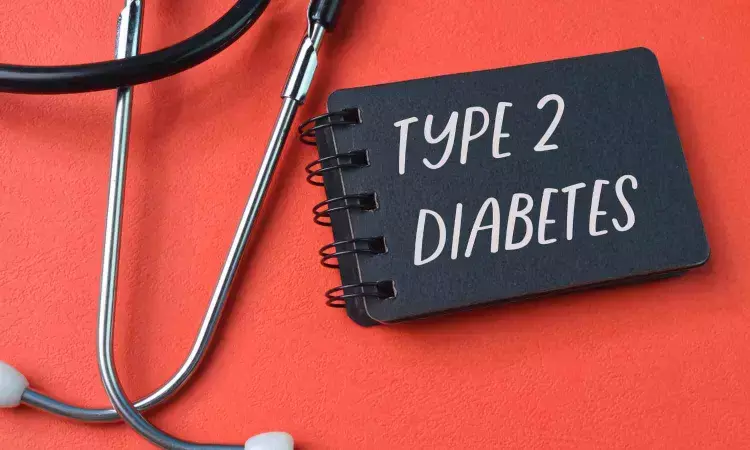- Home
- Medical news & Guidelines
- Anesthesiology
- Cardiology and CTVS
- Critical Care
- Dentistry
- Dermatology
- Diabetes and Endocrinology
- ENT
- Gastroenterology
- Medicine
- Nephrology
- Neurology
- Obstretics-Gynaecology
- Oncology
- Ophthalmology
- Orthopaedics
- Pediatrics-Neonatology
- Psychiatry
- Pulmonology
- Radiology
- Surgery
- Urology
- Laboratory Medicine
- Diet
- Nursing
- Paramedical
- Physiotherapy
- Health news
- Fact Check
- Bone Health Fact Check
- Brain Health Fact Check
- Cancer Related Fact Check
- Child Care Fact Check
- Dental and oral health fact check
- Diabetes and metabolic health fact check
- Diet and Nutrition Fact Check
- Eye and ENT Care Fact Check
- Fitness fact check
- Gut health fact check
- Heart health fact check
- Kidney health fact check
- Medical education fact check
- Men's health fact check
- Respiratory fact check
- Skin and hair care fact check
- Vaccine and Immunization fact check
- Women's health fact check
- AYUSH
- State News
- Andaman and Nicobar Islands
- Andhra Pradesh
- Arunachal Pradesh
- Assam
- Bihar
- Chandigarh
- Chattisgarh
- Dadra and Nagar Haveli
- Daman and Diu
- Delhi
- Goa
- Gujarat
- Haryana
- Himachal Pradesh
- Jammu & Kashmir
- Jharkhand
- Karnataka
- Kerala
- Ladakh
- Lakshadweep
- Madhya Pradesh
- Maharashtra
- Manipur
- Meghalaya
- Mizoram
- Nagaland
- Odisha
- Puducherry
- Punjab
- Rajasthan
- Sikkim
- Tamil Nadu
- Telangana
- Tripura
- Uttar Pradesh
- Uttrakhand
- West Bengal
- Medical Education
- Industry
Low-carb/high-fat diets for weight loss may actually boost risk of type 2 diabetes, suggests study

The global trend towards low carbohydrate, high-fat diets for weight loss can in fact increase a person's risk of developing diabetes by a staggering 20 per cent, according to a groundbreaking 17-year study of almost 40,000 Melburnians.
Published in the journal Diabetes and Metabolic Syndrome, the study by Monash University and RMIT University researchers, led by Distinguished Professor Barbora de Courten OAM together with PhD student Robel Kabthymer, will likely lead to a review of dietary approaches for those wanting to lose weight and avoid diabetes.
Nearly 1.3 million, or one in twenty Australians, have diabetes, though the real figure is expected to be higher because of undiagnosed disease.
The study used data from almost 40,000 Melburnians, aged 40-69 recruited into the Melbourne Collaborative Cohort Study (MCCS) between 1990 and 1994. Their health was then reviewed in 1995–1998 and 2003–2007.
The Monash and RMIT team analysed the percentage of carbohydrates in the diet and related it to the risk of developing type 2 diabetes later in life.
The Low Carbohydrate Score (LCD) was calculated at baseline as the percentage of energy from carbohydrates, fats and protein. The higher the score the less percentage of carbohydrates contributed to energy intake. Specifically, the study found that those whose diet included 38 per cent of carbohydrates had a 20 per cent increased risk of developing type 2 diabetes compared to those whose diet included 55 per cent of carbohydrates. The researchers’ suggests that this increased risk of diabetes is due to increased incidence of obesity.
According to Professor de Courten, the study is the first to look at the long-term effects of a low carbohydrate diet on chronic diseases using Australian data.
“We know that high-carbohydrate diets, that are highly processed, low in fibre, and rich in refined sugars can lead to weight gain. Furthermore, the highly refined carbohydrates can lead to increased insulin secretion and insulin resistance, leading to type 2 diabetes,” she said.
“But studies to date have only focused on examining low carbohydrate for managing and/or remission of type 2 diabetes.”
“Instead, this study reveals that a low carbohydrate diet intake might increase the long-term risk of type 2 diabetes through obesity, potentially through increased eating of fats and foods low in fibre.
“Our study also highlights the need to look at the quality of carbohydrates, proteins and fats.”
Therefore, a balanced diet with minimally processed carbohydrates rich in fibre, healthy mono- and poly-unsaturated fats with sufficient protein intake from fish and seafood, white meat, and legumes as seen in a Mediterranean diet may be the optimal eating pattern to prevent type 2 diabetes.
Reference:
Robel Hussen Kabthymer et al, Association of low carbohydrate diet score with the risk of type 2 diabetes in an Australian population: A longitudinal study, Diabetes & Metabolic Syndrome: Clinical Research & Reviews (2024). DOI: 10.1016/j.dsx.2024.103049 Diabetes and Metabolic Syndrome
Dr Kamal Kant Kohli-MBBS, DTCD- a chest specialist with more than 30 years of practice and a flair for writing clinical articles, Dr Kamal Kant Kohli joined Medical Dialogues as a Chief Editor of Medical News. Besides writing articles, as an editor, he proofreads and verifies all the medical content published on Medical Dialogues including those coming from journals, studies,medical conferences,guidelines etc. Email: drkohli@medicaldialogues.in. Contact no. 011-43720751


